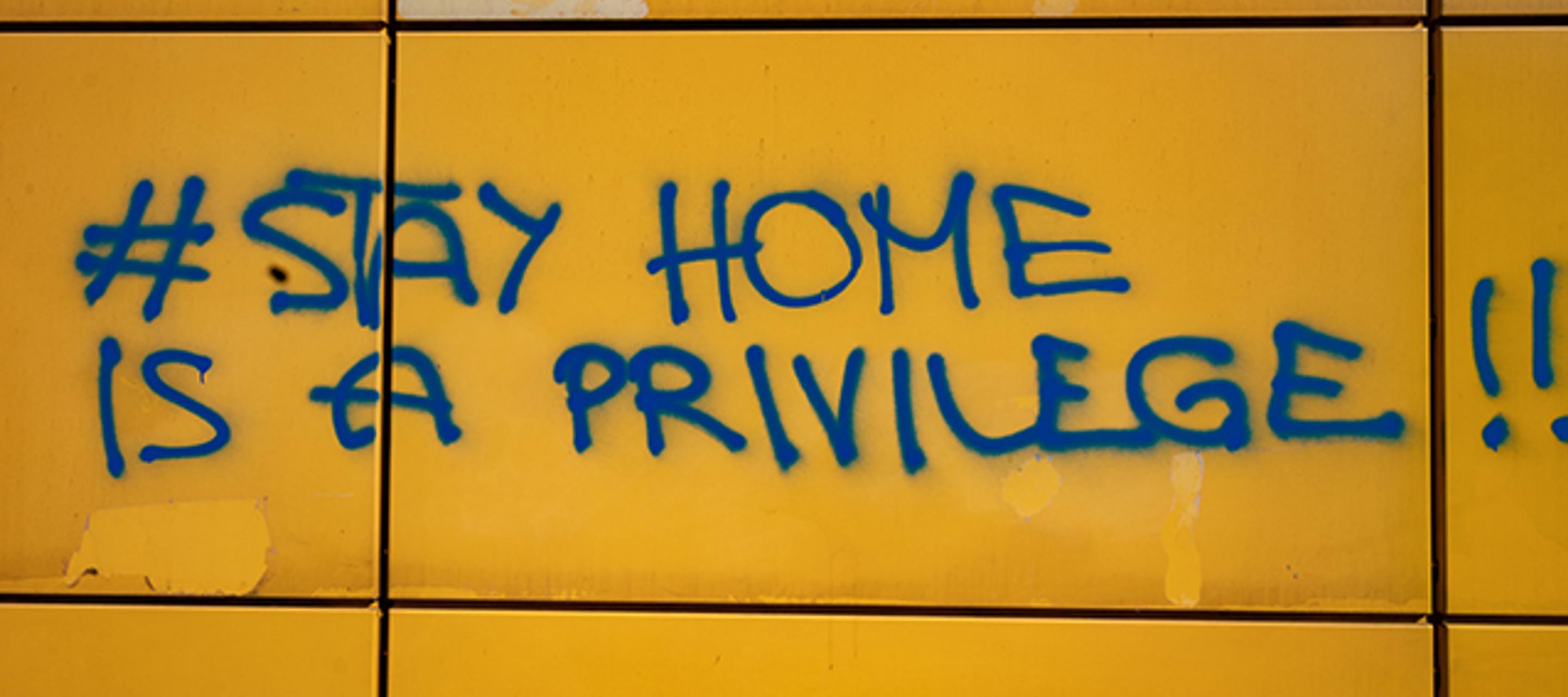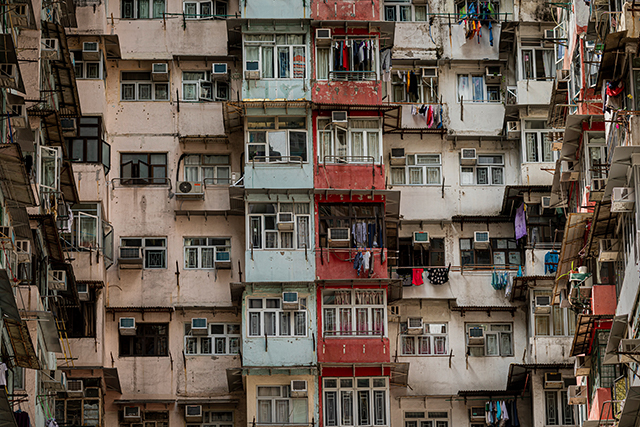COVID, Housing, and Climate - A Call for a Systems Shift
8 April 2020

The seemingly simple words “stay at home” have exposed the economic and racial inequality that divides most cities, countries, and regions.
The COVID-19 pandemic has elevated the centrality of the right to housing – fundamental to our ability to live dignified lives. If the right solutions are implemented, it can spur a new approach to housing policy and finance: an approach that increases the affordability and quality of housing for all, while mitigating and strengthening resilience to the continuing crisis of climate change.
This will involve keeping the agency of local populations at the forefront, government action at all levels, private sector responsibility and accountability, and innovation.
The COVID-19 pandemic has elevated the centrality of the right to housing – fundamental to our ability to live dignified lives.
The Blind Spots Behind “Stay at Home” Orders

Housing vulnerability is a reality in all regions. The pandemic has elevated a global picture of what this means for individuals and their families in their day-to-day lives.
In Las Vegas, when a homeless shelter closed after a man who had used it tested positive, the city created a makeshift shelter in a convention center parking lot. Grids were marked out on the parking spaces, to ensure people slept six feet apart. Images of this makeshift shelter circulated widely. While the city said that this was an emergency situation, it led to calls for the city to use the multiple hotels that are currently standing empty, and, in the longer-term, to fund permanent housing solutions.
The right to housing provides an internationally-recognised and multi-faceted frame for action.
Meanwhile the almost 1 billion people globally who live in informal settlements are far less able than most to practice social distancing, to increase hand-washing when access to water is limited, and to adopt virtual forms of working when the majority of residents work in the informal economy. As a community leader in the Wetlands settlement in the township of Masiphumelele, Cape Town, puts it: “We are trying hard to self-distance. But we need to eat, we need to wash, we need to go to the toilet. All of this requires being outside.”
In all regions, people’s sudden loss of income and the prospect of recession puts their ability to cover rent and mortgage payments even more at risk, leading to calls for temporary rent and debt relief, and the suspension of evictions. A 2018 survey found that of 200 cities polled around the globe, 90% were considered unaffordable, using the widely-used standard of average house prices being over three-times median income.
Scaling the Right Policies
The good news is that solutions exist. But they require bold and collaborative action to realise at scale.
The right to housing provides an internationally-recognised and multi-faceted frame for action, encompassing elements from security of tenure and a guarantee of legal protection against forced evictions, to affordability, habitability, and accessibility.
With real estate accounting for almost sixty percent of global assets, the stakes are high, and the opportunities for systemic change enormous.
Expanding access to adequate housing for all will require the agency and resilience of local populations, proactive measures by government, the responsibility and accountability of private sector actors, and collaborative innovation. And the housing crisis must be tackled hand-in-hand with efforts to address the climate crisis. Before the COVID-19 outbreak, 2020 was slated as a critical year for action on climate change: the urgency of the climate crisis has not gone away.
1. Agency
The pandemic has seen multiple examples of tenant communities organising and coming together to protect their most vulnerable members – such as the Lissenden Gardens estate in North London, where tenants are building on their history of combatting an exploitative landlord in the 1970s, to counter today’s threat of COVID. This local, resilient social fabric is critical to any efforts to expand and protect access to housing.
2. Government action
Governments must avoid the lessons from previous downturns such as the 2008 global recession, ensuring that the COVID response leads to a more just, sustainable economy. As economist Marianna Mazucatto has put it, “That means delivering immediate solutions, but designing them in such a way as to serve the public interest over the long term.” Multiple city governments – from Chengdu, to Sydney, to Copenhagen - are advancing innovative policy to expand access to housing.
3. Private sector responsibility and accountability
The rapid expansion of urban areas has come in tandem with the over-financialisation of housing - through which housing is seen first and foremost as an asset class to facilitate the short-term maximisation of profit – a trend that is exacerbating housing vulnerability and, in the worst cases, homelessness. Private finance will play a crucial role, along with public finance, in developing the housing and the fundamental infrastructure that growing populations urgently need: provided that it is connected closely with locally-defined priorities, and accompanied by effective due diligence on human rights.
Investors can shift finance away from ‘extractive’ models and scale financing for a just transition – an approach that takes account of climate, communities (including the right to housing), and workers. With real estate accounting for almost sixty percent of global assets, the stakes are high, and the opportunities for systemic change enormous.
4. Innovation
Along with the rising price of land, construction costs are a major factor in making housing less affordable. Through innovations in the manufacture of construction materials in multiple contexts, construction and design firms are able to dramatically reduce both the climate impact and the costs of materials, while creating new jobs and ensuring that fair pay for construction workers is maintained. In Europe, vacant properties have been repurposed to provide housing for refugees and recently-arrived migrants. Effective collaboration across all sectors in the built environment can identify new opportunities for innovation and expand them at scale.
The response to COVID has illustrated the need for both local-level solidarity and innovation, and global co-ordination with the private sector playing an active, responsible role. The same applies to the crises of housing and climate – with impacts that are felt at the level of individual lives, but trajectories that are determined to a large extent by transboundary factors, such as global finance and carbon emissions. The COVID pandemic must be a wake-up call to dramatically scale policies and practices that have the dignity of the individual and the wellbeing of the planet at the centre.
IHRB is leading the Coalition for Dignity in the Built Environment, together with its partners Rafto Foundation, Raoul Wallenberg Institute, and the Australian Human Rights Institute at the University of New South Wales. The Coalition is developing a framework for action across all stages of the built environment lifecycle, and a dynamic programme that combines systems-level interventions with investors and governments, and project innovation in diverse contexts.




